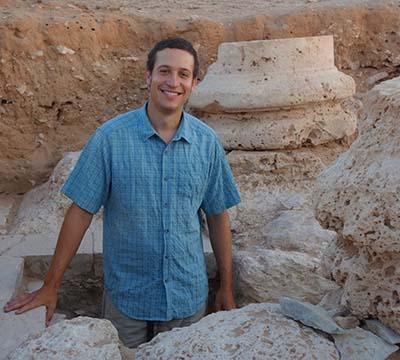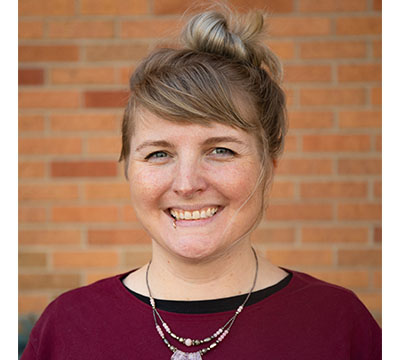
Dr. Brett Kauffman
Environmental and Industrial Archaeology at the Roman-Carthaginian Urban Mound of Zita, Tripolitania
Tuesday, February 22
11 am-12 pm
U140
Dr. Kauffman will describe the findings of a joint Tunisian-American archaeological excavation in the ancient North African city of Zita, also called the Olive City. This is the first such joint partnership since the Arab Spring. This exciting presentation will explore the remains of the Roman forum, a Punic tophet or sanctuary, and several industrial workshops. We will learn about ancient human health and agriculture.
Dr. Brett Kauffman is Assistant Professor of Classics and Anthropology at the University of Illinois at Urbana-Champaign. He is an archaeologist specializing in the Mediterranean and Near East, ancient engineering and design, and reconstructing ecological management strategies of ancient societies.
 Sarah Latham
Sarah Latham
Authenticity and Spectacle: An Ethnography of a New Orleans Museum
March 23
1–2 pm
Room U140
Sarah Latham holds a Masters degree in Anthropology from Louisiana State University. She has taught and workshopped social justice issues from a cultural perspective both in the classroom and within the community. She strongly believes in collaborating and dialoguing around the important role which culture plays in our world, both historically and in our current moment.
Plantation tourism is a growing industry in Louisiana. In this talk, I will review the ethnographic research I conducted with the experiences of tour guides at the Whitney Plantation Museum in Wallace, Louisiana, through participant observation and in-depth interviews. My study contributes to literature on tourism, social memory, and the legacy of slavery in North America. It offers a unique perspective as it considers the experiences of the tour guides focusing on how to best analyze and understand narratives as they are memorialized in heritage sites. I found that as a community, tour guides strived to change peoples’ perceptions of our nation’s history in such a way that it has a positive impact on society today.